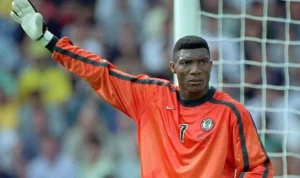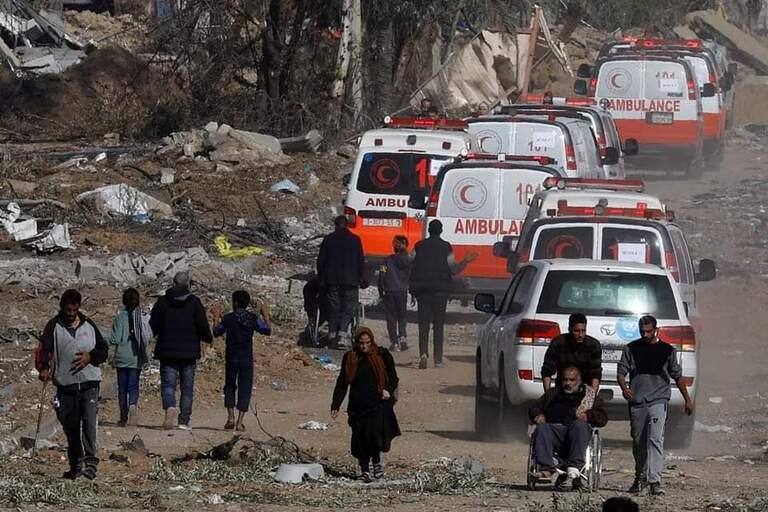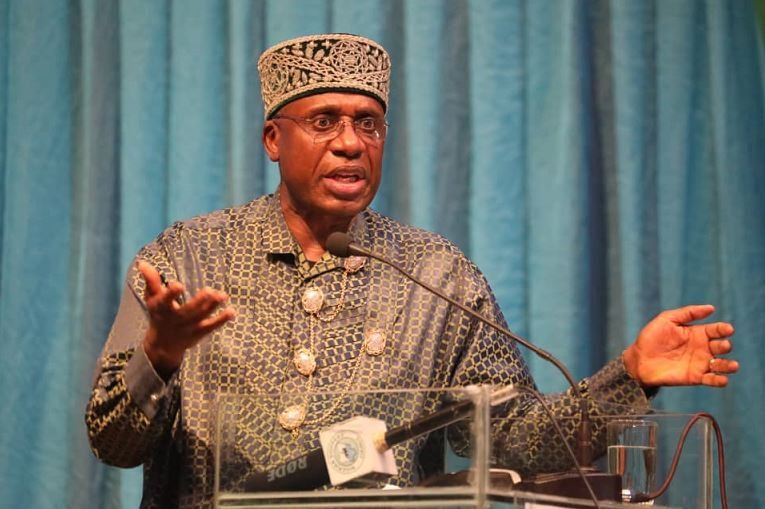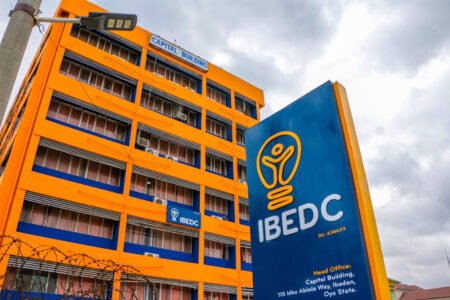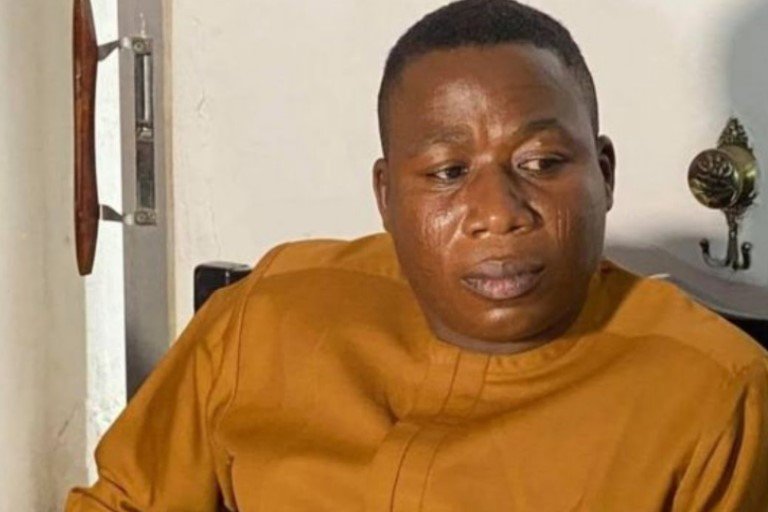Thirteen Israelis and four Thai nationals arrived in Israel on Sunday after a second release of hostages held by Hamas in an exchange deal for Palestinian prisoners, despite a dispute about aid delivery into Gaza.
Although the issue was resolved through mediation by Egypt and Qatar, it delayed the release of captives and underscored the fragility of the four-day truce to swap 50 hostages held by the Palestinian militant group for 150 prisoners in Israeli jails.
A Palestinian official familiar with the truce efforts played down the threat that it could collapse.
“There is no major threat to the agreement. Mediators are dealing with things on a daily basis, and hopefully the deal will be completed,” the official told Reuters.
The truce is the first halt in fighting since Hamas fighters rampaged through southern Israel on Oct. 7, killing 1,200 people and taking about 240 hostages.
In response to that attack, Israel has vowed to destroy the Hamas militants who run Gaza, raining bombs and shells on the enclave and mounting a ground offensive in the north. Some 14,800 people, roughly 40% of them children, have been killed, Palestinian health authorities said on Saturday.
Television images showed freed hostages on the Egyptian side of the Rafah border crossing after leaving Gaza as Hamas handed the captives to the International Committee of the Red Cross late on Saturday.
Six of the 13 Israelis released were women, and seven were teenagers or children. The youngest was three-year-old Yahel Shoham, freed with her mother and brother, although her father remains a hostage.
“The released hostages are on their way to hospitals in Israel, where they will re-unite with their families,” the Israeli military said in a statement.
Israel released 39 Palestinians—six women and 33 minors—from two prisons, the Palestinian news agency WAFA said.
Some of the Palestinians arrived at Al-Bireh Municipality Square in Ramallah in the Israeli-occupied West Bank, where thousands of citizens awaited them, a Reuters journalist said.
Violence flared in the West Bank, where Israeli forces killed seven Palestinians, including two minors and at least one gunman, late on Saturday and early Sunday, medics and local sources said.
The West Bank has seen a surge of violence in parallel to Israel’s war against Hamas in Gaza. More than 200 West Bank Palestinians have been killed by Israeli forces since the Oct. 7 Hamas attack, according to UN figures.
Second Release
Saturday’s swap follows the previous day’s initial release of 13 Israeli hostages, including children and the elderly, by Hamas in return for the release of 39 Palestinian women and teenagers from Israeli prisons.
On Friday, Hamas also released a Philippine national and 10 Thai farm workers.
The four Thais freed on Saturday “wanted a shower and to contact their relatives,” Prime Minister Srettha Thavisin said on social media platform X.
All were safe and showed few ill effects, he said.
Eighteen Thais remain captive, Thailand’s foreign ministry said on Sunday.
“I’m so happy, I’m so glad, I can’t describe my feeling at all,” Thongkoon Onkaew told Reuters by telephone after news of the release of her son Natthaporn, 26, the family’s sole breadwinner.
Aid Dispute
The deal risked being derailed when Hamas’ armed wing said on Saturday it was delaying releases until Israel met all truce conditions, including committing to let aid trucks into northern Gaza.
Saving the deal took a day of high-stakes diplomacy mediated by Qatar and Egypt, which US President Joe Biden also joined.
Hamas spokesperson Osama Hamdan said only 65 of the 340 aid trucks that had entered Gaza since Friday had reached northern Gaza, or “less than half of what Israel agreed on.”
Al-Qassam Brigades, the Hamas armed wing, also said Israel had failed to respect terms for the release of Palestinian prisoners that factored in their time in detention.
The Israeli military said the United Nations and international organisations distribute aid within the Gaza Strip. The UN said 61 trucks delivered aid to northern Gaza on Saturday, the most since the war began seven weeks ago. They included food, water, and emergency medical supplies.

Israel has said the ceasefire could be extended if Hamas continued to release at least 10 hostages a day. A Palestinian source has said up to 100 hostages could go free.
‘Heart Is Split’
Saturday also brought hours of waiting for the families of hostages, some of whose joy was tempered by the continued captivity of others.
“My heart is split because my son, Itay, is still in Hamas‘ captivity in Gaza,” Mirit Regev, the mother of Maya Regev, who was released late on Saturday, said in a statement from the Hostage and Missing Families Forum.
The wait for the release of the Shohams, who left a parent hostage in Gaza, had been nerve-wracking, said Aviv Havron, a relative. “But what is that compared to the 50 days they spent as hostages?” the Ynet news site quoted him as saying.
Also released was Irish-Israeli hostage Emily Hand, initially feared killed but who spent her ninth birthday in captivity before being freed, along with 12-year-old Hila Rotem, whose mother remains in captivity.
“We are overjoyed to embrace Emily again, but at the same time, we remember Raya Rotem and all the hostages who have yet to return,” Hand’s family said in a statement.

